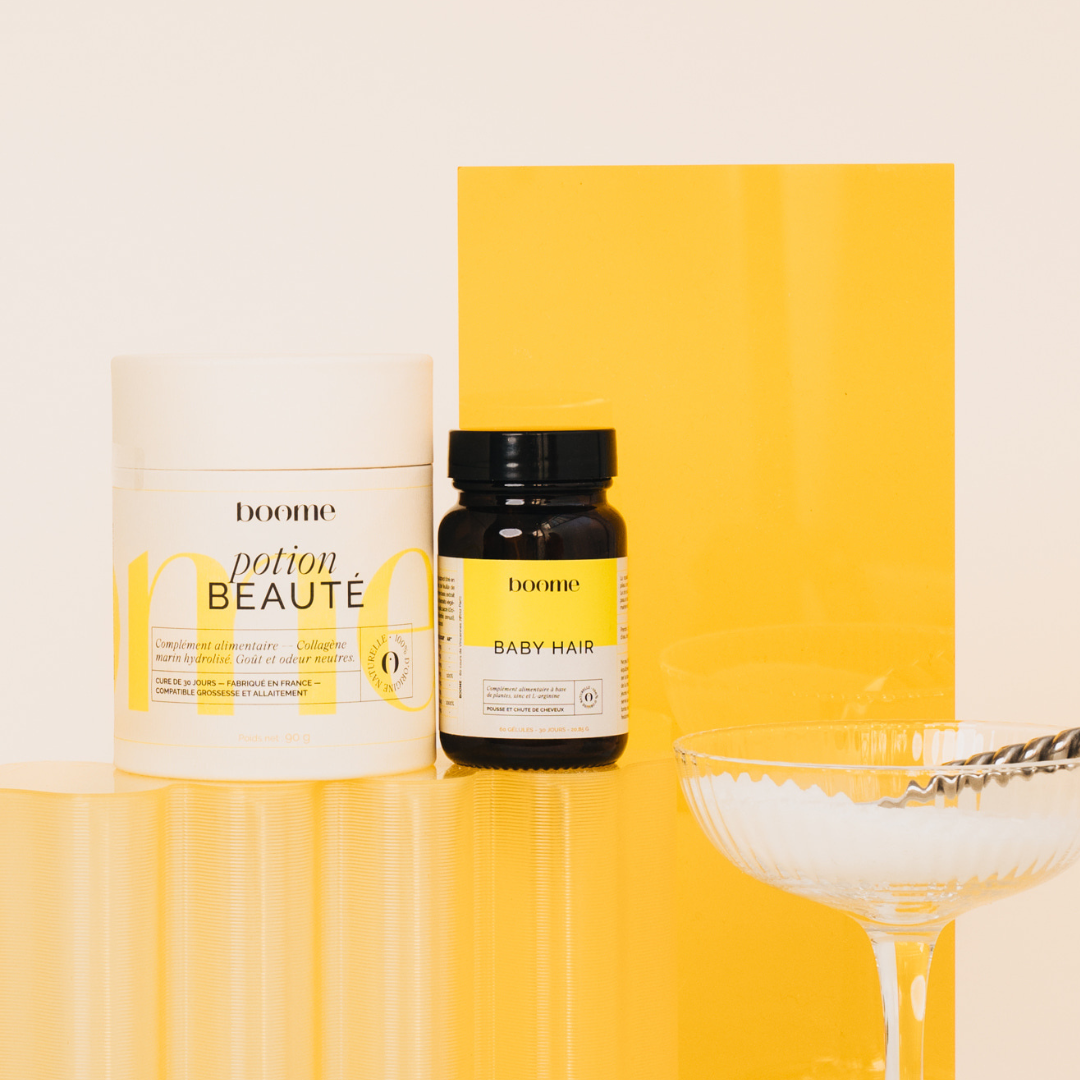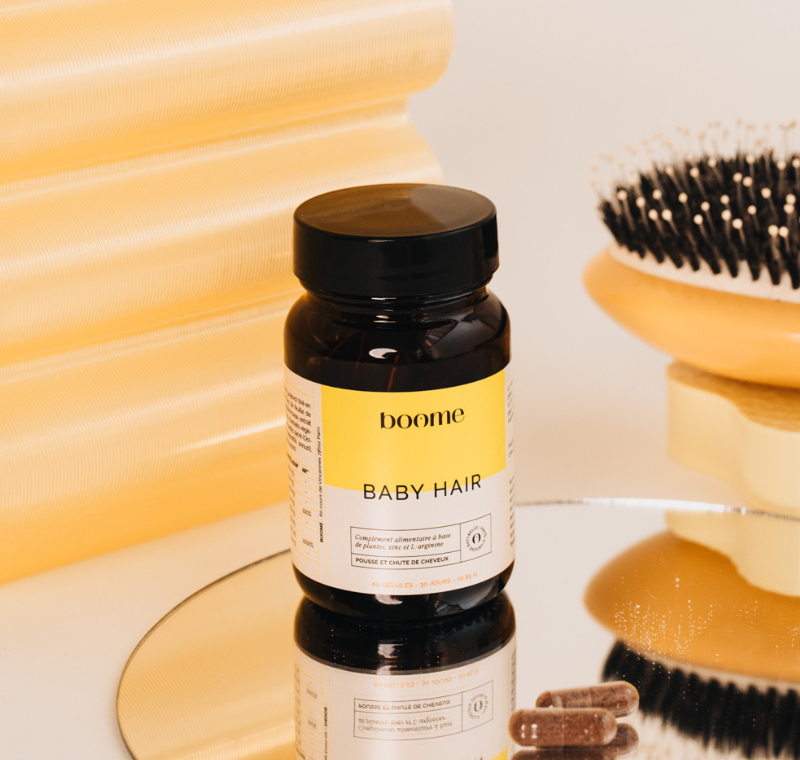
Wrinkles, loss of elasticity, sagging... The skin is one of the first witnesses of the passing of time. However, nature offers us a powerful ally to slow down these signs of aging : collagen. Nature? Yes, but not only! Because science has also seized on this molecule, now essential in cosmetics and food supplements, well placed alongside hyaluronic acid . However, collagen continues to raise many questions. What are its real benefits on the human body ? How to use it to maximize its effects? Should you choose it of marine or bovine origin ? In this article, we explain everything about this powerful antioxidant, which could well transform your beauty routine.
Collagen: definition and role in skin health
Collagen is a protein naturally present in all the structures of our body: blood vessels , teeth, skin, etc. This “biological cement” also takes great care of our connective tissues , ensuring:
- their cohesion;
- their elasticity;
- their firmness.
It also fights against joint pain by pampering our tendons, bones and ligaments.
There are several types of collagen. Among the main types : type I , which takes particular care of our skin health. Or type I II, beneficial for muscles and arteries.
But then, what role does this protein play for our skin, exactly? It is important to know that with age, collagen production decreases. This is a natural process that begins in the twenties and accelerates around menopause. This leads to visible effects, such as:
- the appearance of wrinkles;
- a loss of elasticity;
- sagging skin.
Of course, age is not the only factor that compromises the skin's ability to regenerate on its own. Exposure to UV rays, oxidative stress (due to the famous free radicals ) or poor diet can also reinforce this decrease.
What are the benefits of collagen for the skin?
The benefits of marine collagen are countless, and for all skin types x! Here's a quick presentation of its overall action on the skin.
What are the effects of collagen on the face?
Are you looking to preserve the youth and vitality of your face? Collagen should catch your eye! Thanks to its structuring properties, it helps to reduce the first signs of aging by maintaining the elasticity and firmness of the skin. Because collagen stimulates cell regeneration. And therefore, helps to maintain an even complexion, in addition to reducing skin imperfections (such as small scars or redness).
In short, collagen allows you to:
- strengthen the skin's natural barrier;
- regain firm skin ;
- and fight against a dull complexion.
What are the benefits of collagen for the skin of the body?
This protein also proves beneficial for the skin of the body. Yes, it:
- improves the hydration of the epidermis;
- helps prevent dehydration;
- helps maintain healthy skin .
For example, if you’re concerned about stretch marks, collagen could be a great help. Since it promotes better elasticity, it can help reduce their appearance – and improve skin texture and evenness. This is especially helpful after weight loss or pregnancy!
Results: goodbye dull skin, hello firm skin .
Does collagen remove wrinkles?
Collagen is often touted as the miracle protein that prevents the appearance of wrinkles and signs of aging . However, take this idea with a grain of salt. Yes, it helps slow down their formation, because it stimulates the production of new fibers and improves the structure of the epidermis. However, be careful what you read or hear! Collagen does not “remove” existing wrinkles, a natural (and healthy) process of skin aging. Its benefits focus instead on preventing and reducing them.
Did you know that collagen is a great ally after the birth of your baby? Our article on collagen and postpartum tells you all about it!
How to use collagen for a skin boost?
Want to try collagen on your skin? Here are our top tips for choosing the right one.
What is the most effective collagen for skin?
Note that if you are looking to improve your skin health and the appearance of wrinkles , not all collagens are equal. In this case, we will tend to recommend the use of marine collagen , recognized as more effective for this type of use. Why? Because its low molecular weight makes it more easily absorbed by the body. Derived from fish, marine collagen is rich in bioactive peptides that stimulate tissue regeneration.
Animal collagen , which comes from cattle bones or skin, is also still widely used. It is recommended if you are prone to joint pain .
How to add it to your diet?
Incorporating collagen into your diet could well become child's play! For example, you will find it in certain foods rich in collagen, such as:
- chicken skin;
- bone broth;
- oily fish (especially their skin).
You can also consume collagen as a cure with a collagen food supplement. In powder format, nothing could be easier than adding them to your smoothies, fruit juices , coffee or soups. This is an easy gesture to integrate into your skincare routine !
Little bonus tips:
- to enhance its effects, always make sure to include this protein in a healthy diet. For example, by also including foods rich in vitamin C, which is essential for the synthesis of collagen in the body.
- A supply of hyaluronic acid can also be a plus to boost the radiance of your complexion and limit skin aging.
If you are worried that you have consumed too much collagen, don't panic: the human body is well made and will eliminate the excess on its own. Poor quality collagen, especially when taken in excess, can, however, cause some undesirable effects on your digestive system. Before choosing your collagen food supplement, make sure that it is of good quality and that it has good traceability.
In short, whether it is of marine or bovine origin , collagen remains a real asset for preserving the health of your skin and preventing the first visible signs of aging. But also to fight against these joint pains that can make our lives difficult. In a healthy diet, it fits perfectly into your lifestyle for a healthy skin!









